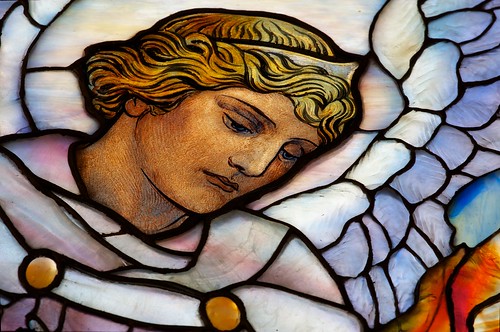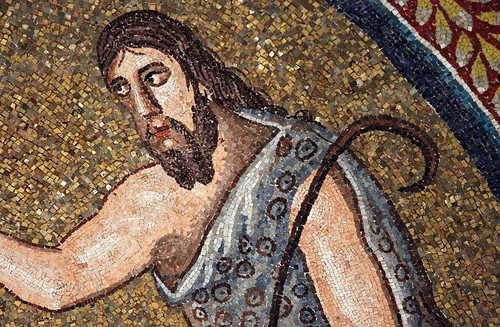 |
| Photo Credit: Kent G Baker on Flickr.com |
Sermon Text:
This
year, in his Christmas message, the Primate (the head of the Anglican Church of
Canada) has asked us to consider reflecting on the hymn, “O Little Town of
Bethlehem.” This is not hard for me to do, because it is one of my favourite
Christmas hymns and I have appreciated and thought about it for many years. It
is especially important this year as we witness scenes of political upheaval
and unrest in Bethlehem today. Perhaps the hymn can have even more meaning for
us this year because of this fact. International politics can certainly
distract from the true Christmas message. But then so can many of the trappings
of a typical secular commercial Christmas.
Well,
it has seemed that the pace of life has just become more and more frantic over
the last few weeks. It happens every year, of course, with the Christmas rush
rushing through like a freight train travelling at high speed. It’s just that
this year somehow that Christmas pre-season seemed to be more compressed – time
seems to be moving faster the older I get – and so it has seemed a bit more
frantic this year.
It helps remarkably that we
as a family have more or less pulled ourselves out of the commercial Christmas
game. We never really have done the huge gift-giving that seems so connected to
the frantic reality that I witness. Yet, and I don’t know how this happened,
but my annual eye exam was booked a year ago to land on yesterday – the day
before Christmas Eve, and, you’ll never guess where my optometrist’s office is:
Mapleview Mall – yes the very heart of the Babylonian captivity itself!
I expected that I would have
to park in Oakville and walk, but I was extremely lucky to get a parking space.
I arrived early and as I wasn’t there to buy anything, I was just able to
people watch instead. People were waiting in line to see Santa. Many people
have all kinds of bundles and gifts. Several – especially the men - had that
kind of panicked look on their faces as time inexorably marched on. When it was
time to leave the parking lot while I was waiting in line approaching the
three-way stop everyone was taking their turn until one woman driving an SUV
with a huge red nose on the front grill and with antlers sticking out the sides
from the back windows cut in front and was instantly honked by another car. She
rolled down her window and made a very rude gesture while she sailed on through
the intersection. That image really summed up for me the commercial aspect of
the season which provides us with such a complexity of emotions including love
of family, impatience with others, and such expectations which probably no one
can fully meet
Thank
God that the real meaning of Christmas isn’t complicated at all but is really
very simple. It’s the Jesus story – the story of his birth all those centuries
ago in Bethlehem.
In
great opposition to the commercial theme of Christmas, the Jesus story is quiet
and still and holy. Despite the sound of the glorious anthems and music in
Church which I love, despite the words of the readings and the sermon, the
message of the Jesus Story is felt, more than understood, in a mysterious and
perfectly silent peace. The anthems, the readings, the sermon all simply point
to this mystery, they put the mystery into a setting, a container, but the
mystery is received in awe and wonder in stillness. For me it is usually
sometime during the distribution of Holy Communion that this mystery is
received.
Of
all of the Christmas hymns which I knew as a kid, it was “O Little Town of
Bethlehem” which spoke to me the most. I felt its truth. “Above [Bethlehem’s]
deep and dreamless sleep, the silent stars go by.” Yes, that was right to me.
Most of our life was like a dark and dreamless sleep when compared to the light
of those silent stars and the truth to which they witnessed. And, yes, yet in
our dark streets shines “the everlasting light.” Yes, holy things aren’t apart from the everyday, but the everlasting
light shines in the midst of it all - sometimes invisibly, it seems, and yet
perceivable. The lesson from Isaiah speaks of this light when it starts off,
saying, “The people who walked in darkness have seen a great light; those who
lived in a land of deep darkness - on them light has shined.”
Essential
to the deep truth of this hymn are the words about, ‘how silently, how silently
the wondrous gift is given’, and though, “no ear may hear his coming, ... where
meek souls will receive him, still the dear Christ enters in.” And the hymn
ends with, “O come to us, abide with us, our Lord Emmanuel.” Emmanuel meaning “God with us.”
I
must have been around eight when I remember
really listening to the words of that hymn. I was left awe-struck by them. They
were so real and true and deep. They left me feeling so excited and with a
sense of immense privilege that God, who I had always assumed was far too great
to be concerned with petty human affairs, actually rushed in to be with us - to
abide with us.
Of
course it wasn’t something which my eight-year-old brain really understood: how
exactly did it all work? But then, today, it is equally not something which my
57-year-old brain really understands either. But even at the age of eight I
knew that the truth of this mystery was something which can be known
without having all the facts along with diagrams and a flowchart to explain it
all.
This
Jesus story is deep and true and meaningful – in stark contrast to the
commercialism of a secular Christmas.
It
has only been in the years since I was eight that I have come to a fuller
appreciation of the mystery. I’ve learned some new words and read of some new
images. Incarnation is probably the most helpful word to point toward the
mystery. Anyone who knows Spanish knows that “Carne” means meat. In-carn-ation,
then, means that God became flesh, or human. How and why God did that is certainly
a mystery, but one which can be grasped at if one can begin to imagine the
great love that God has for us. God is a lover whose love is so great that he
wants to be right with us.
And
God did it in the most amazing way - he came to us in the greatest humility -
as a newborn baby. And not any baby - a baby born in the deepest poverty - laid
in the animal’s feeding trough instead of
a cradle. And the message was heard not by the royalty and the wealthy of the
land, but by the humblest of people - the shepherds who lived outdoors with the
animals which they looked after. This God, wanting to include everyone, came to
us as the humblest so that no one should be left out.
As a
kid, it would be after the late Christmas Eve service as I went outside with my
family that I would always look up hoping that there would be no clouds and I
would see the silent stars going by. For me, no matter where I lived, it was
Bethlehem, and the great mystery had just taken place that night.
The
deepest, truest part of that hymn is in the prayer of the fourth verse which
prays to the holy child of Bethlehem to descend to us and be born in us today.
God comes to us not only in the child born two thousand years ago, but he comes
to us again and again, born in human hearts today. I have witnessed this
amazing mystery of others being Jesus to me throughout my life. But more
astounding than that is the thought, for each of us, that the holy child of
Bethlehem is not only born in others, but is born even in ourselves.
I
wish you all a joyous Christmas as we celebrate the true story: the Jesus
story. May you truly experience the Jesus story this year. “O come to
us, abide with us, our Lord Emmanuel.”


